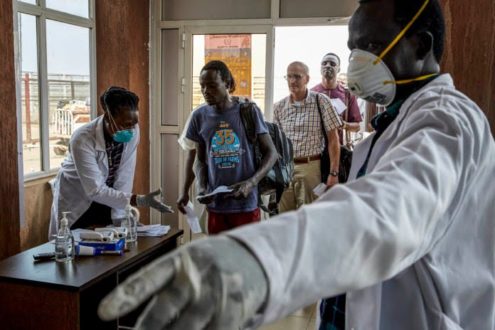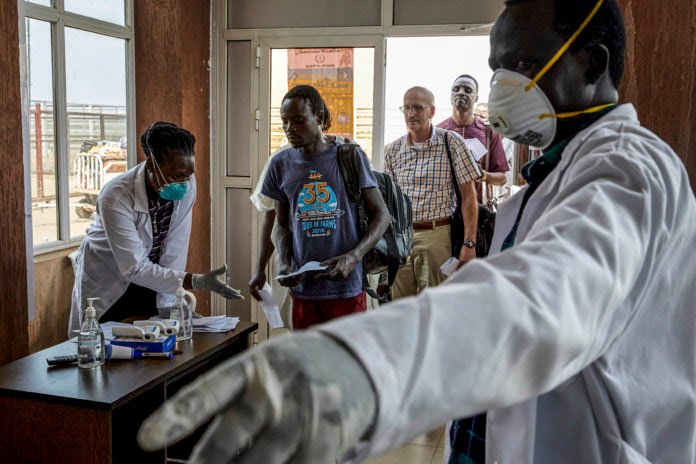
South Africa has switched from fear mode to fight mode in our response to the novel coronavirus, and online news gives evidence for this. As a linguist, one of the things I am interested in is how the language we use about particular things changes over time, and the language used in reporting about Covid-19 is a great example of rapid change.
“Fear” was the word that showed the eleventh-strongest statistical association with “Covid-19” in my database of top online news articles for March 2020, as my previous blog post showed. In April that word was nowhere to be found. Instead, three verbs were prominent in my list of the strongest associations with Covid-19: “contain” (the third-strongest correlation), “dealing” (6th) and “fight” (8th). “Contain” always comes in the phrase “contain the spread of Covid-19”; “dealing” appears mostly in “dealing with Covid-19” and once in “dealing with people with Covid-19”; “fight” is to found in phrases such as “fight against Covid-19”.
What is significant about these verbs is that they show South Africans as having power, rather than the virus. When we see a verb, a good question to ask is: “Who is ‘doing’ the verb?” The subjects of verbs are those who are portrayed as having agency, or power, in most situations. And in this case, the subjects are institutions and people working in partnership with each other. For example, News24 reported on a statement from the national treasury that says “collaboration between government, business, labour and civil society remains vital in order to contain the spread of Covid-19 and ensure sustainable economic recovery”.
Our strategists in this fight are the Ministerial Advisory Committee on Covid-19, causing “ministerial” to be the word with the second-strongest association with “Covid-19” in April. This committee is chaired by Prof Salim Abdool Karim, who has become an instant household name with his PowerPoint presentations and epidemiological graphs showing the curve we’re all trying to flatten.
But how are we fighting? The news confirms that a primary weapon in this fight is the facts about the virus, as I mentioned in my previous post. For example, as one article put it, “parents are urged to arm themselves with the real facts about Covid-19 and remain calm and provide reassurance to children, who will follow their lead”. The word “facts” shows the single strongest association with “Covid-19” in April’s top news articles.
Some of these important facts are numbers, a point made clear by three of the other associations with “Covid-19”: “bringing” (fourth-strongest), “toll” (7th) and “total” (9th).
“Bringing” is used in phrases such as “bringing the total number of deaths to…”. Other important statistics, as we all know by now, are the total number of confirmed cases in the country, and the number of tests done. It is these numbers that Karim and his colleagues are constantly crunching as they guide our strategy. The word “current” has the tenth-strongest association with “Covid-19”, reminding us of how fast-changing these figures are.
Although “toll” is most often used in the grim phrase “death toll”, one headline shows that some aspects of the damage caused by the virus are more difficult to quantify: “Covid-19 taking toll on the poor, elderly and front-line health workers”. This article describes the psychological strain that this fight is taking on all of us, but especially these groups who are very much at risk.
Another word, “related”, the fifth-strongest association with Covid-19 in April, shows how the effects of the virus ripple out in many directions. People die after suffering from complications related to Covid-19. Other things related to Covid-19 mentioned in the news are arrests of lockdown violators, and of course our deep economic downturn.
South Africa is still very much in the thick of its fight with the novel coronavirus, but we can definitely draw encouragement from the picture painted in this analysis of April’s news coverage. The threat that the Covid-19 pandemic poses should not be underestimated, but we are in this fight together.



